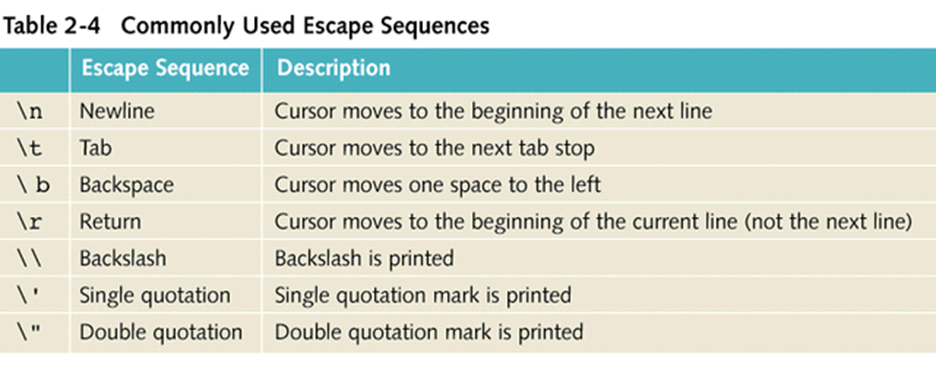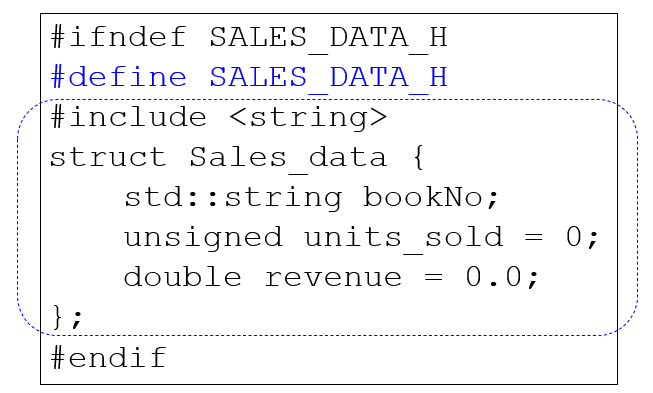텍스트 파일 열기
#include <fstream>
using namespace std;
int main()
{
ifstream inData; //declare an input file stream
ofstream outData; //declare an output file stream
string firstName, lastName;
inData.open("names.txt"); // open input file
outData.open("marks.txt"); // open output file
inData >> firstName >> lastName; // read from a file stream
outData << 85.6; // write into a file stream
inData.close(); // close the input file
outData.close(); // close the output file
return 0;
}inData.open (" 열고자 하는 파일 이름.txt " );
outData.open (" 새로 저장할 파일 이름.txt" );
inData 로 데이터를 읽어올 파일의 이름을 특정 했으니 어떠한 데이터를 읽을지 결정한다
inData >> firstName >> lastName; [성과 이름을 읽는다]
outData << 85.6; 문서에 85.6이라는 숫자를 적는다.
inData.close();
outData.close(); 두 파일 모두 항상 .close(); 를 해줘야 프로그램이 정상 종료된다.
#include <fstream>
using namespace std;
int main()
{
ifstream inData; // declare an input file stream
char fileName[] = "exams.txt";
string lastName, mark;
inData.open( fileName ); // open input file
if (!inData) // check if opened successfully
{
cerr << "Error opening : " << filename << endl;
return -1; // exit with an error code
}
inData >> lastName >> mark;
inData.close(); // Close the input file
return 0;
}If 문을 활용하여 특정 파일이 열였는지 안열였는지 확인 가능하다.
ifstrean inData; input 파일 시스템을 사용 할거기 때문에 항상 선언을 해야한다.
char fileName[] = "exams.txt" 파일 이름을 특정해준다.
string lastName. mark;
inData.open ( fileName ); input 파일을 열게하는 코드이다.
if (!inData) if문을 활용하여서 앞서 설정했던 파일의 이름과 동일한 파일이 없다면 return -1; 을 결과값으로 나타낸다 -1 은 false 값이기 때문에 종료된다.
inData >> lastName >> mark; 파일이 정상적으로 열렸다면 파일의 lastName 항목에 mark를 적는다.
inData.close(); close를 해야 파일이 안전하게 저장되고 프로그램이 정상 종료된다.
4가지의 에러체크 기능이 있다
1. eof = end of file 파일의 끝
if( inData.eof() ) { Error recovery action }
2. fail = 잘못된 데이터로 인하여 종료
if( inData.fail() ) { Error recovery action }
3. bad = 하드웨어 문제
if( inData.bad() ) { Error recovery action }
4. function good() 의 값이 true를 나타내는 경우는 아무런 에러가 감지되지 않았을 때 이다.
1 2 3
while( ! inData.eof() )
{
inData >> number;
cout << number << " ";
}
1 2 3 3
텍스트 파일의 컨텐츠는 1 2 3 이라고 가정해ㅐ보자
eof의 가 false 이면 inData는 넘버를 읽는다
cout 으로 인하여 number에 "1"이라는 값이 추가되고 << 를 따라서 빈칸인 " "; 를 나타낸다.
그래서 output은
1 " " 2 " " 3 " " 3
하지만 마지막 3까지 읽었다면 eof 가 발동된다.
inFile >> newNumber;
if( inFile.fail() )
{
inFile.clear();
inFile.ignore(100, ‘\n’);
}
inFile.clear(); 를 이용하여 에러가 발생했을때 복구 하는 기준을 정한다.
int readData(ifstream& inFile, InfoType& student, string myId)
// inFile 은 파일을 읽기위함 student 는 정보 타임 myId는 c++ 오브젝트이다
{
string nameFirst;
string nameLast;
string Id;
do inFile >> nameFirst >> nameLast >> Id;
// nameFirst 를 읽고 nameLast 를 읽고 마지막으로 Id를 읽는다
while( inFile.good() && Id != myId );
// inFile.good() 이고 Id 가 myId 와 동일하지 않다면
if(inFile.fail()) return -1; // invalid character
if(inFile.bad()) return -2; // hardware failure
if(inFile.eof() && Id=="") return -3; // myId not found
student.firstName = name.First;
student.lastName = name.Last;
student.Id = Id;
return 0;
}
데이터에 빈칸이 존재 할 때
예시)
float price;
char productName[20] ;
char fileName[] = "test.txt";
ifstream inData;
inData.open( fileName );
inData >> price; // 가격을 불러오고
inData.getline(productName, 20); //제품 이름을 불러와야 함

하지만 text.txt 에서 34.99를 읽고 난 후에 빈칸이 존해하기 때문에 Motor Oil로 가지 못함
cout << price << endl; //34.99
cout << productName << endl; // " " 이렇게 빈칸을 불러오게됌
이러한 문제를 해결하기 위해서 inData.ignore 을 사용 해야함
inData >> price;
inData.ignore( 20, ‘\n’ ); // 이렇게 '/n'을 이용하여 빈칸 버퍼 문제를 해결
inData.getline(productName, 20);

프로그램이 빠르게 실행되기 위해서는 버퍼 문제를 잡아야함
#로 시작을 하면 끝에 ; 를 안붙여도 됌

SALES_DATA_H 가 if not defined (ifndef) 라면 #define SALES_DATA_H 를 실행한다.
struct 사용법
struct AddressType
{
string city;
int zip;
};
struct StudentType
{
int id;
bool isGrad;
AddressType addr;
};Nested structure를 이용하려면 이런식으로 하면 된다
StudentType s;
s.addr.zip = 53706;
StydentType 안에 AddressType 이 있다 AddressType 을 addr로 지정했으니
AddressType 안에 있는 int zip 에 접촉할 수 있는 것이다.
c++에 랜덤을 이용하기
라이브러리에
$ CC -std=c++11 rand-eng.cpp 를 추가하고
(-std=c++11 은 라이브러리를 사용하기 위함이다)
#include <random> ( 랜덤 기능을 사용하기 위해서 상단에 추가해야한다)
default_random_engine randEng;
for ( int i = 0; i < 10; i++)
cout << randEng() << endl;를 이용하면 된다 가장 기본이 되는 랜덤을 사용하는 코드이다.
Atoi 사용법
atoi 는 주로 인티저로 바꾸기 위해 사용된다
#include<iostream>
#include<string>
#include<sstream>
using namespace std;
string itos(int i) // int를 string 으로 변환하기
{
stringstream s;
s << i;
return s.str();
}
int main()
{
int i = 127;
string ss = itos(i);
const char* p = ss.c_str();
cout << ss << " " << p << "\n";
}Tokenization 코드
#include <vector>
#include <string>
vector<string> splitString (string str, string delim)
{
vector <string> result;
size_t pos = 0;
string token;
while ( (pose=str.find(delim)) != std::npos )
{
token = str.substr (0, pos);
result.push_back (token);
str.erase (0, post+delim.length());
}
if (!str.empty())
result.push_back (str);
return (result);
}
int main ()
{
string s = "John, Doe, Clementi Rd, C++, 3.55";
vector<string> dataItems = splitString (s, ", ");
for (size_t i = 0; i<dataItems.size(); i++)
cout << dataItems [i] << endl;
}makefile 이란 ?
fa.cpp 는 fa.h 에 의지
fb.cpp 는 fb.h 에 의지
main.cpp 는 fa.h와 fb.h에 의지
3개의 파일을 다 합치는 prog 파일 생성
prog: main.o fa.o fb.o
g++ -o prog main.o fa.o fb.o
main.o: main.cpp fa.h fb.h
g++ -c main.cpp
fa.o: fa.cpp fa.h
g++ -c fa.cpp
fb.o: fb.cpp fb.h
g++ -c fb.cppunion 과 struct 의 차이
struct adt
{
int i;
float f;
};
union mytype
{
int i;
float f;
};cout << sizeof(int) << " " << sizeof(float) << endl;위 코드 실행 시 값은 4 4 가 나온다 왜냐하면 int 의 사이즈는 4 바이트 이고 float의 사이즈도 4 바이트 이기 때문이다
cout << sizeof(adt) << endl;위 코드 실행 시 값은 8이 나온다 왜냐하면 struct 는 값의 바이트를 합치기 때문 (4+4)
cout << sizeof(mytype) << endl;위 코드 실행 시 값은 4 가 나온다 왜냐하면 union 은 i 와 f 가 같은 메모리를 공유하기 때문에 두 값을 겹친다
'코딩 > C++' 카테고리의 다른 글
| [C++] Struct, Union 이해하기 (0) | 2025.01.21 |
|---|---|
| [c++] template 사용하기 (0) | 2024.08.22 |
| [c++] using namespace 사용하기 (0) | 2024.08.19 |
| [Linux] Ubuntu Compile 컴파일 하는 법 + 파일 실행 법 (0) | 2024.07.10 |
| C++ 입문 (0) | 2024.07.03 |